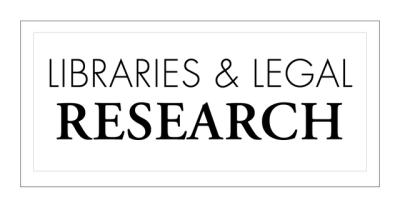
Legal information, the stuff of legal research, is big business. And legal research is often associated with big spending. With artificial intelligence becoming part of the legal research landscape, big spending becomes even bigger.
The 2022 ABA Survey on Technology Report: Online Services revealed that “46% of survey respondents reported their firms negotiated a flat fee with their primary legal research provider[,]” down from 64% in 2019.1 The recently released 2023 survey noted that 56% of respondents use fee-based online legal research services while 12% reported not using fee-based online legal research services at all.2
Are the costs associated with legal research a concern? How are you managing these costs? Who advises you on legal information access, content, and other research considerations? Which course is best for your clients and firm members? When confronted with these and similar questions, you can consider employing a law librarian, legal information professional, consulting firm, or a savvy member.
Librarians are knowledgeable about legal resource offerings and the vendors who provide them. In its 2023 report,3 legal consulting and outsourcing company Harbor Global identified cost management as the top issue for law firm libraries. The costs of proprietary legal research tools such as Lexis, Westlaw, Bloomberg Law, and others continue to push higher. Librarians and information professionals can help determine which sources may be a better value in print than online, recommend content-specific resources of value for client research and the firm’s practice areas, and develop expertise in using current research trends including free research tools. Librarians often see lists of so-called free legal research websites4 and have the experience and expertise necessary — as well as familiarity with client research needs — to evaluate sources found in the endless search for free tools.
Academic law librarians are also excellent sources of information on vendors and product offerings even though the law school cost structure is substantially different from that for firms or companies. Academic law librarians similarly support students, faculty, and the legal community with their expertise in legal research methods, making resources available to support faculty research and student learning. Their role also emphasizes instruction and introducing legal research resources to law students and other researchers and students throughout the college or university.
Online databases such as Lexis, Westlaw, and Bloomberg Law are licensed for law student, faculty, and staff use; other law-related online services may be offered campuswide or for use to the public by visiting the law library. Remember that the vendors of legal-research platforms like to get their users while they’re young by providing law students with full access to their offerings and, once they enter the workforce, the new lawyer feels lost without his or her preferred online source.
Full access has started to include AI-related materials, a feature recently introduced by both Lexis and Westlaw. For example, Thomson Reuters gathered comments about its recent generative AI products launch5 to further interest. Law students are among the first introduced to these new tools, creating a desire for advanced research tools outside of academia. Law firms then face a decision about which platforms to contract with — do they prefer a favorite vendor at exorbitant prices or a less-expensive product that may require retraining researchers?
What can law firms and libraries do when looking at contracts for legal research? If your firm lacks an expert of its own, perhaps calling in an experienced consultant is the way to go. Primary legal research provider contracts have become a staple of library management. Considerations other than price or duration can be a concern including licensing, the number of users, and the impact of additions or departures from a practice group on usage. Just as you may counsel a client on the terms of a contract, consider what type of analysis may be helpful for your business. Using legal research consultants has become more popular over the years. While not an exhaustive list, entities like Research Contract Consultants, Feit Consulting, and Harbor Global have expertise in negotiating legal research contracts and can substantially reduce concerns about whether a contract is right for your firm or library. Consultants with broad view of the industry can advise on whether a quoted price is high, low, or in the midpoint of the marketplace. As a party to a contract, one cannot discover what other firms or libraries of your size are paying, but a consultant may provide a better assessment of the landscape.
Consultants also may have a broad view of which parts of a contract to push back on if the price seems too high. For instance, we all remember receiving print materials and routing copies to interested parties within our firm or law school. Now, we seldom see print materials and instead need licenses for each viewer of the product. This has led some vendors to require an enterprise license giving everyone access, but it also means that the consumer is paying for access for individuals who will never use the product. Consultants may offer suggestions based on other products or solutions that can keep you from excessive access and underutilization.
Do you know who in your organization actually uses the expensive contract materials? A Research Contract Consultants article6 reminds us to do our due diligence before starting negotiations. Bar associations (including the State Bar of Michigan) are providing members with FastCase or other research tools. Are your attorneys using these tools for research while barely touching Westlaw, Lexis, or Bloomberg Law?
Finally, consider your use of legal research resources and your practice. An experienced, savvy firm member has an advantage in knowing both your client and practice needs and evaluating what works for your practice.